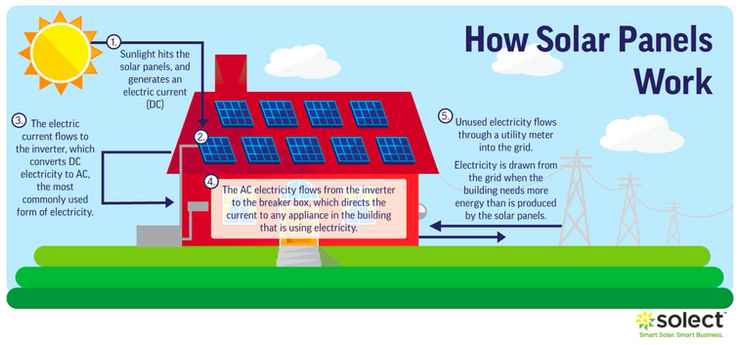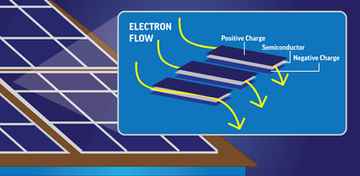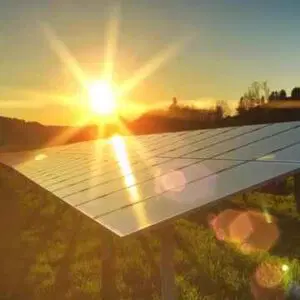Solar power is the energy of the future. Chances are high that you know the basics about how solar energy works…sun shines on panel, panel sends electricity to whatever it is powering, right? But do you know how that part actually works?
Basic Steps in Solar Energy Generation and Transmission
Again, most of us understand the basics of the generation and flow of solar electricity:
- Sunlight hits the solar panels, and creates an electric field.
- The electricity generated flows to the edge of the panel, and into a conductive wire.
- The conductive wire brings the electricity to the inverter, where it is transformed from DC electricity to AC, which is used to power buildings.
- Another wire transports the AC electricity from the inverter to the electric panel on the property (also called a breaker box), which distributes the electricity throughout the building as needed.
- Any electricity not needed upon generation flows through the utility meter and into the utility electrical grid. As the electricity flows through the meter, it causes the meter to run backwards, crediting your property for excess generation.

Now let’s take a deeper dive into the science behind the solar photovoltaic panel!
The Science Behind Solar PV Cells
Solar PV panels are comprised of many small photovoltaic cells – photovoltaic meaning they can convert sunlight into electricity. These cells are made of semi-conductive materials, most often silicon, a material that can conduct electricity while maintaining the electrical imbalance needed to create an electric field.

When sunlight hits the semiconductor in the solar PV cell, the energy from the light, in the form of photons, is absorbed, knocking loose a number of electrons, which then drift freely in the cell.
The solar cell is specifically designed with positively and negatively charged semiconductors sandwiched together to create an electric field (see the image above).
This electric field forces the drifting electrons to flow in a certain direction – towards the conductive metal plates that line the cell. This flow is known as an energy current, and the strength of the current determines how much electricity each cell can produce. Once the loose electrons hit metal plates, the current is then directed into wires, allowing the electrons to flow like they would in any other source of electric generation.
As the solar panel generates an electric current, the energy flows through a series of wires to an inverter (see step 3 above). While solar panels generate direct current (DC) electricity, most electricity consumers need alternating current (AC) electricity to power their buildings. The inverter’s function is to turn the electricity from DC to AC, making it accessible for everyday use.
After the electricity is transformed into a usable state (AC power), it is sent from the inverter to the electrical panel (also called a breaker box) [step 4], and distributed throughout the building as needed. The electricity is now readily available to power lights, appliances, and other electrical devices with solar energy.
Any electricity that is not consumed via the breaker box is sent to the utility grid through the utility meter (our last step, as outlined above). The utility meter measures the flow of electricity from the grid to your property and vice versa. When your solar energy system is producing more electricity than you are using on site, this meter actually runs backwards, and you are credited for the excess electricity generated through the process of net metering. When you are using more electricity than your solar array is generating, you pull supplemental electricity from the grid through this meter, making it run normally. Unless you have gone completely off-grid through a storage solution, you will need to pull some energy from the grid, especially at night, when your solar array is not producing. However, much of this grid energy will be offset from the excess solar energy you generate throughout the day and in periods of lower usage.

While the details behind solar are highly scientific, it doesn’t take a scientist to convey the benefits a solar installation can bring to a business or property owner. Our solar experts can walk you through these benefits and help you explore if a solar solution is right for your home and/or business.


